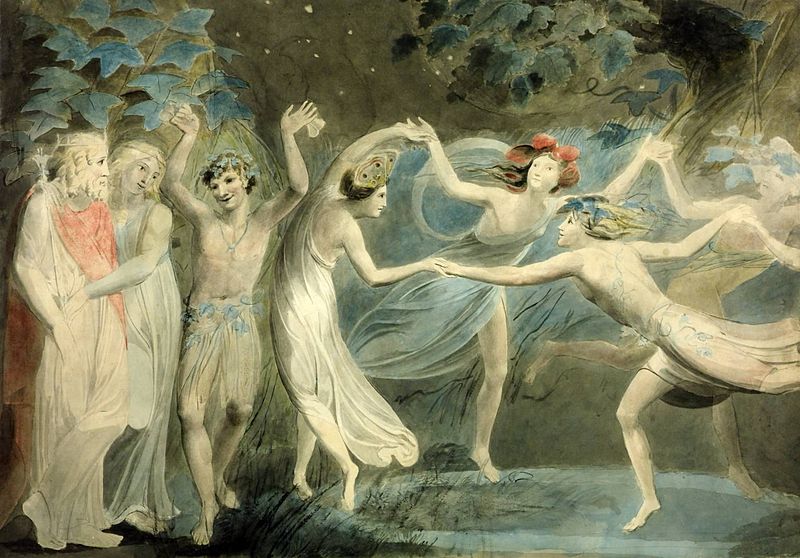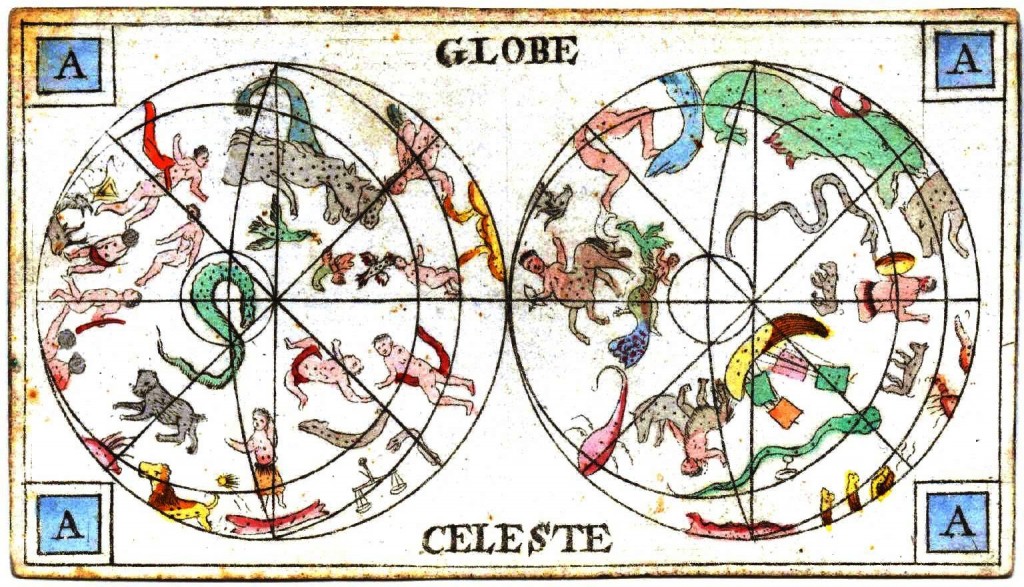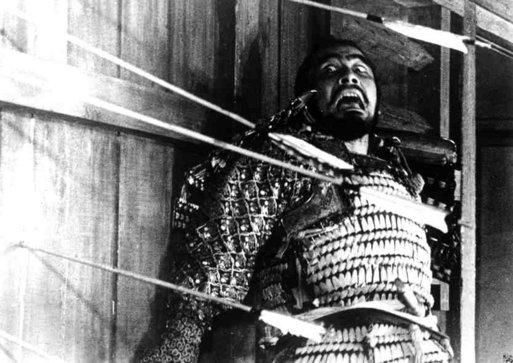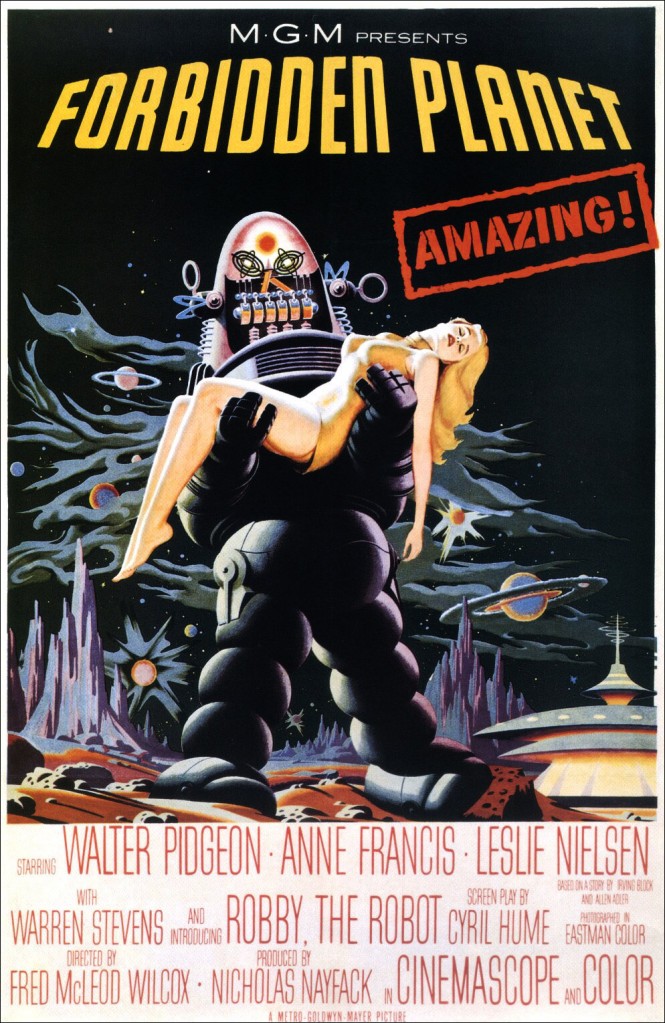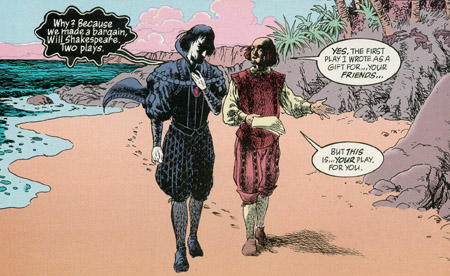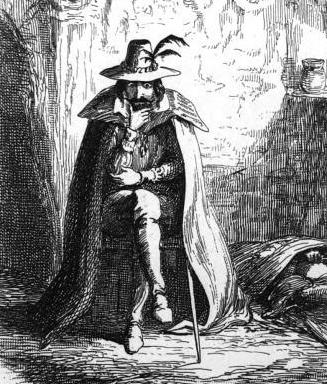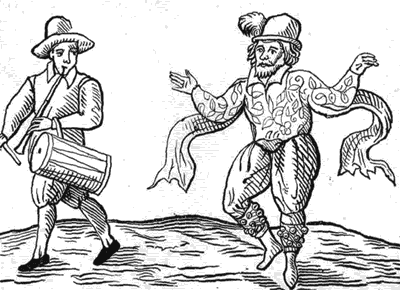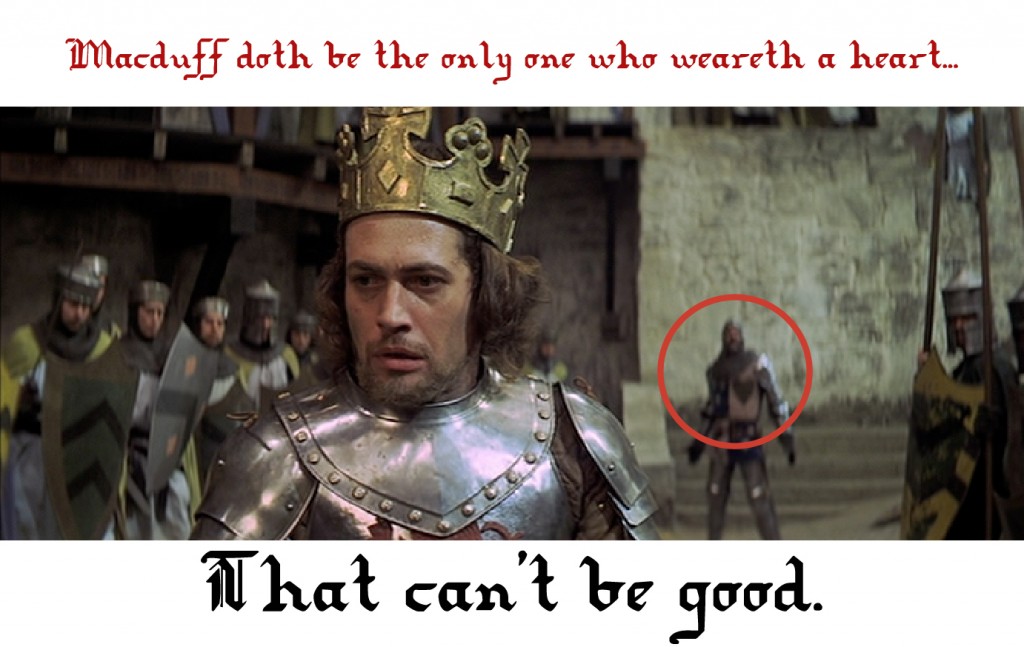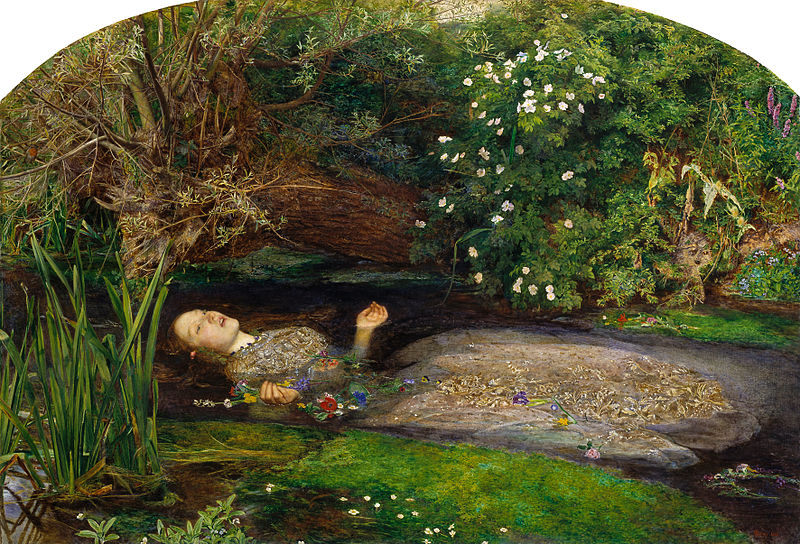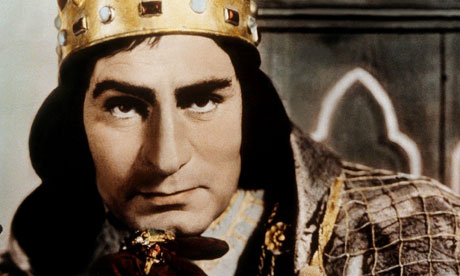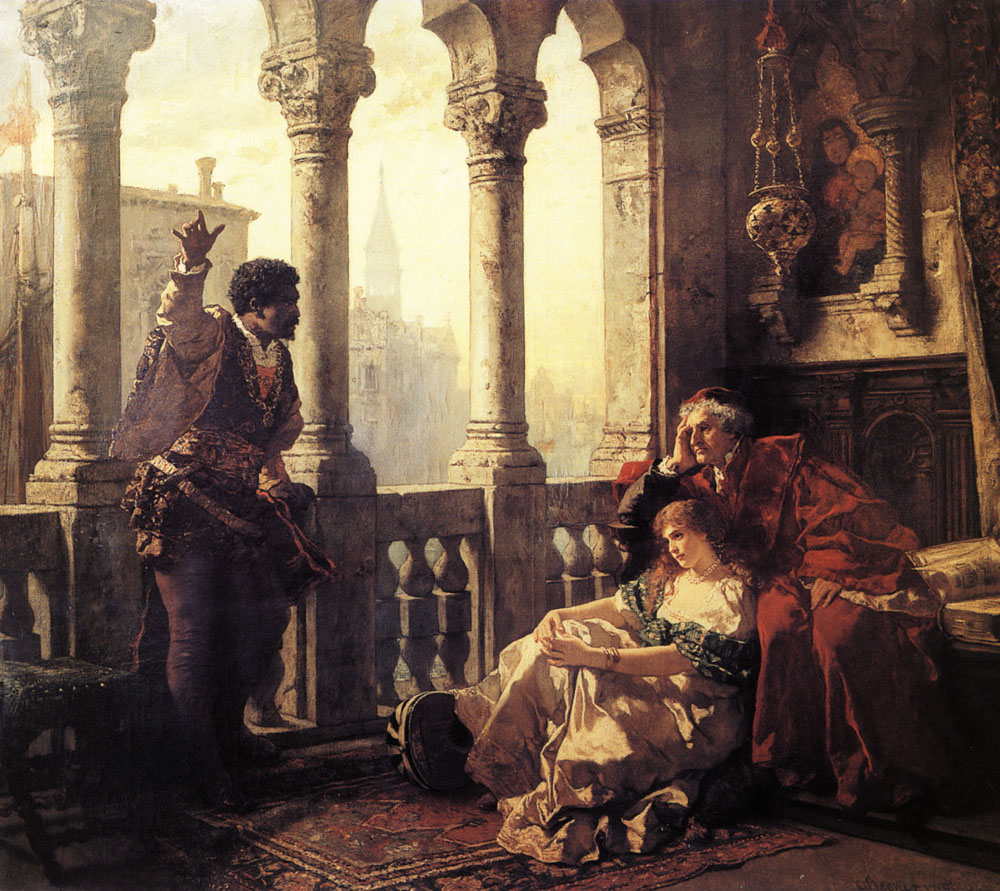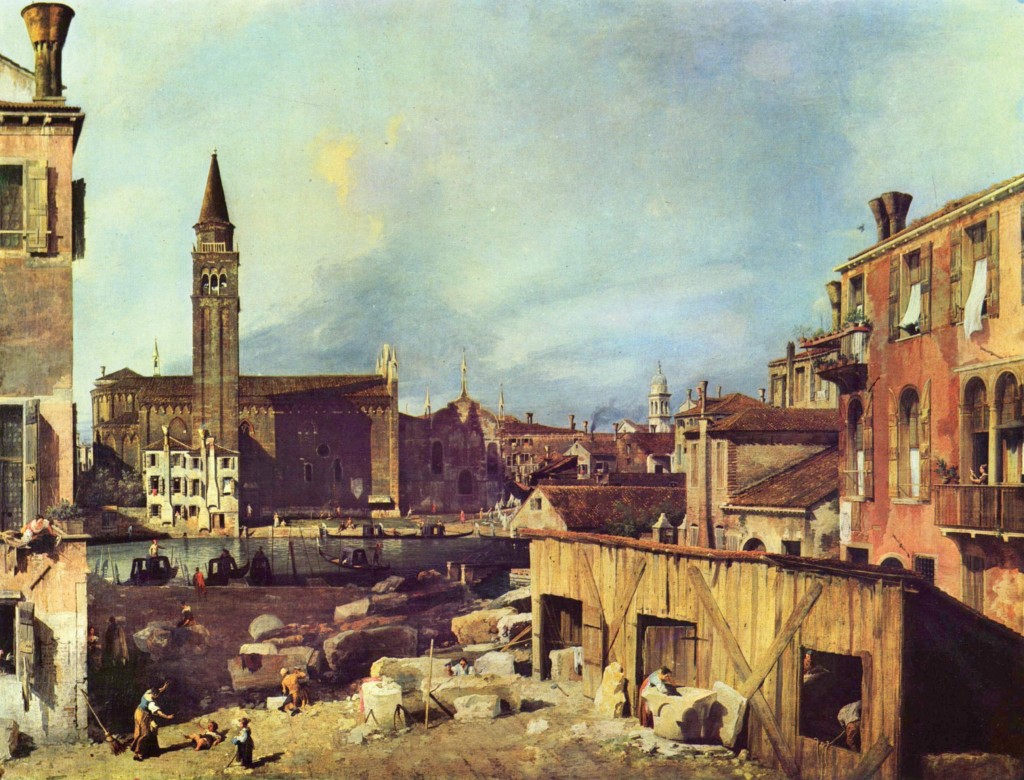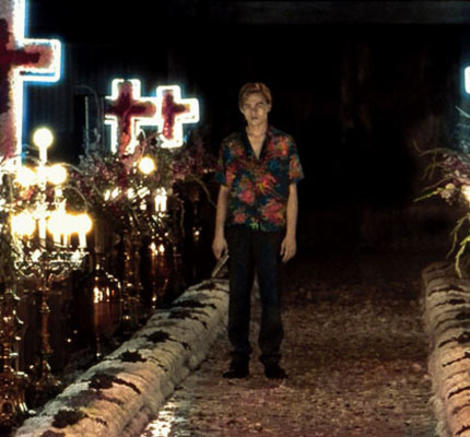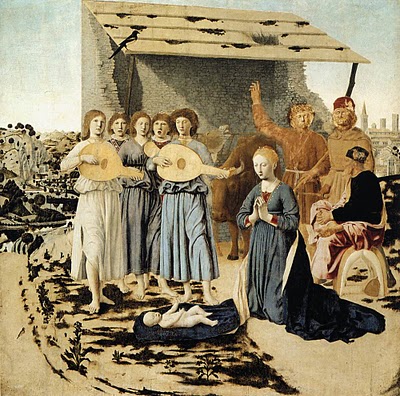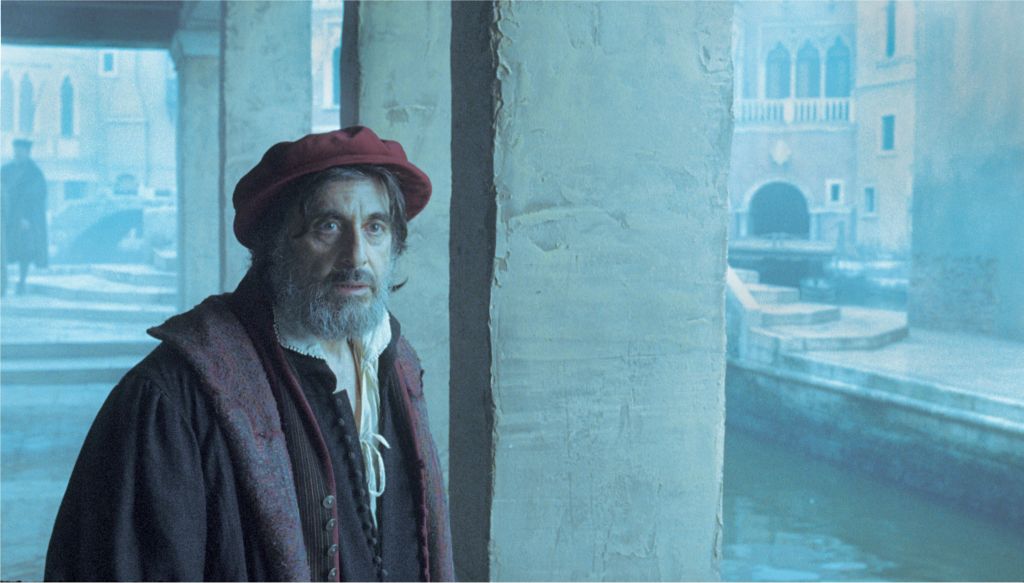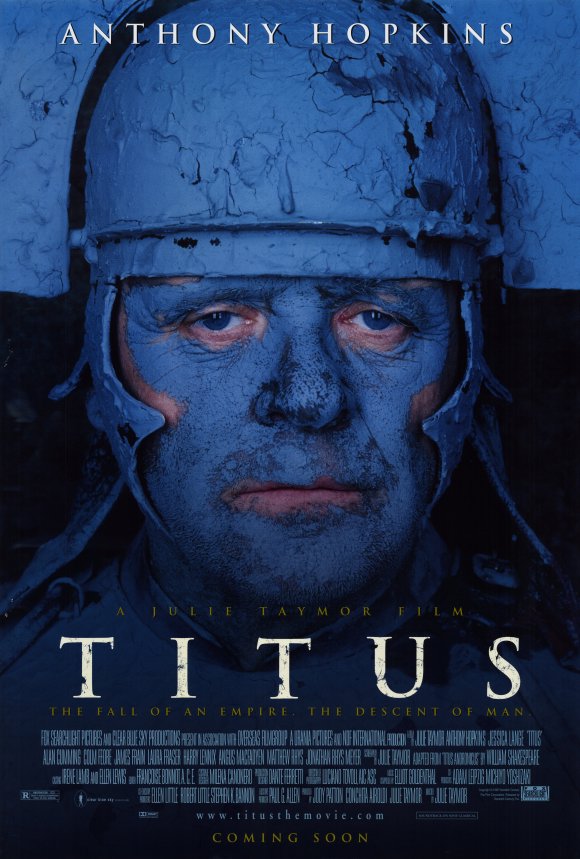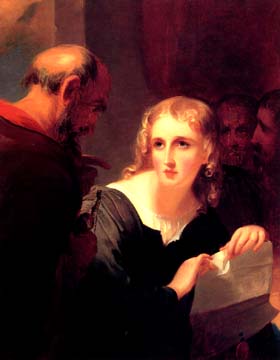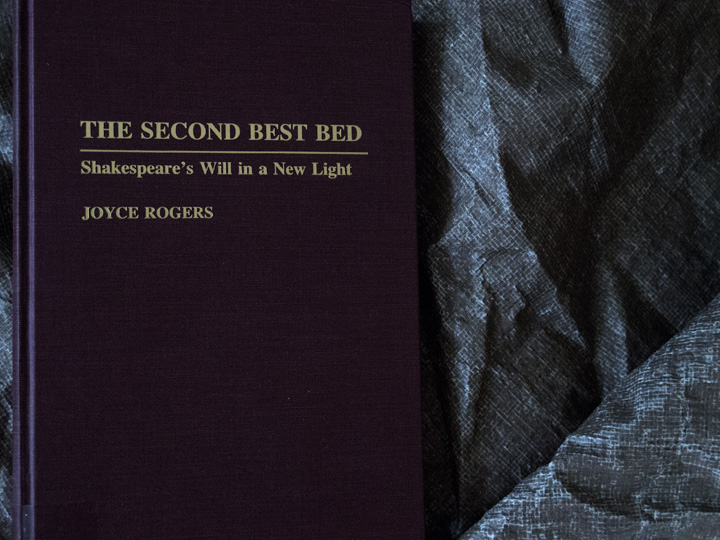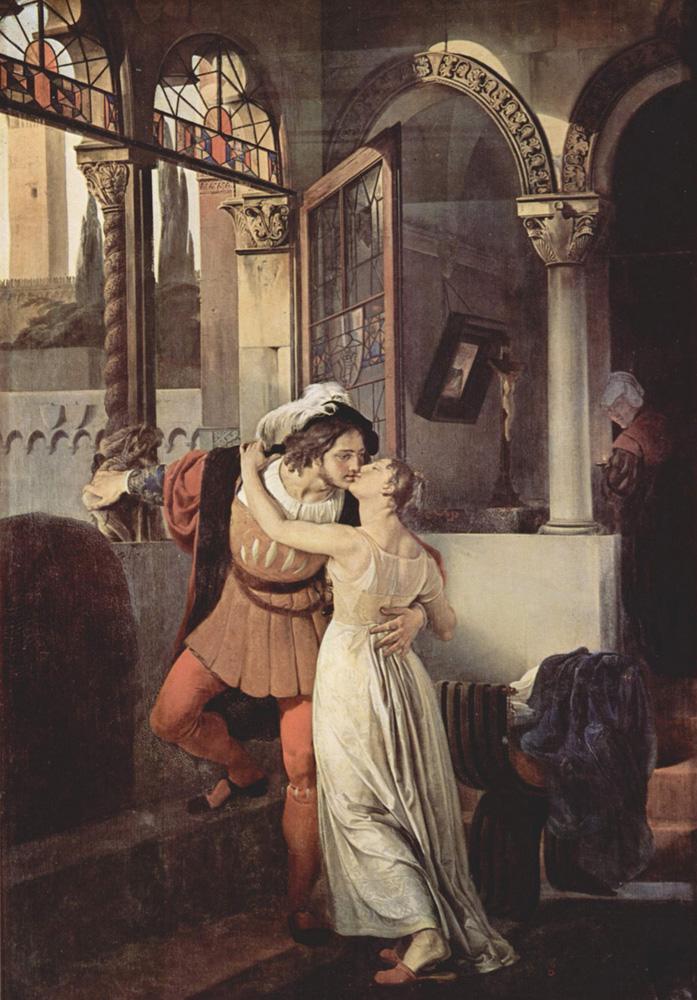A birthday is as good of a time as any to explore the work of the world’s most influential writer, but there’s no way that I can do the Bard justice in just one blog post. Instead I will focus on a few distinctive qualities that are meaningful to me as a jumping off point for your own explorations.
Shakespeare’s world is so vast that no one who studies it intently will walk away with the same impressions. A general will see something different than a poet, a mother, or a slave. In that spirit, I’m not offering you a definitive guide. It’s just my own personal interpretation.
While I am not a Shakespearean expert in the vein of someone like Harold Bloom, I have spent some time studying Shakespeare’s plays and seeing them performed. I’ve been blessed to see a live performance by the Royal Shakespeare Company and to visit London’s Globe Theatre and the recreated Blackfriars Playhouse in Staunton, Virginia.
I’ve also done some theater work that involved Shakespeare, most notably I played a part in Othello for a local theater company in Virginia. Also, the first screenplay I ever wrote happened after I saw a production of A Midsummer Night’s Dream and met a certain girl, so Shakespeare has been an important part of my life for several reasons.
Oberon, Titania and Puck with Fairies Dancing – William Blake, 1786
I have worked hard to distill Shakespeare into a reasonably brief (“reasonably” being the operative word!) blog post that is entertaining and informative. If I succeed in doing that, would you agree to comment, say thanks, or share this with others?
Whenever I find value in something, I look for ways to show appreciation. Sometimes that means paying for a valuable service or product, but if there is no cost involved, then I might take a moment to say thanks or to share my thoughts. Can you commit to do the same? If you can, I would be grateful!
With that said, let’s get on with it. Once more unto the breach, dear friends!
William Shakespeare’s birthday has been traditionally placed on April 23rd, 1564, but some intellectuals have called to question the exact date of his birth. They site discrepancies in the Gregorian calendar as justification for disputing the long established historical tradition that placed Shakespeare’s birth on the 23rd.
By doing so they avoid acknowledging the once unquestioned bit of trivia that Shakespeare died on the same day in which he was born, April 23rd, which happens to be St. George’s Day. That St. George is the patron saint of England adds some significance to the birth date in question, much to the annoyance, it can be presumed, of the very intellectuals who dispute the date.
There is something symmetrical about a birth and death that happen on the same day, a day that has special meaning to the nation into which our person of interest was born, and any self respecting intellectual knows that there is nothing particularly symmetrical about life, excluding of course, the phenomenon known as the Circle of Life, a key concept that has been sufficiently demonstrated, to the satisfaction of most intellectuals, in Disney’s The Lion King.
Celestial Map – S. L. Hegrad, 1783
As Sir Elton John beautifully conveyed in his sweeping ballad, the Circle of Life “moves us all,” or as Shakespeare might say, “the wheel is come full circle.”
But, Elton John’s Circle, while beautiful, is not likely to come up in many Shakespearean discussions, so let us not dwell on it too long. However, the film from which the song is derived is widely understood to be an adaptation of Shakespeare’s play Hamlet. So, as you can see, even a seemingly arbitrary Disney song is at least tangentially related to the topic at hand, the topic being the wide and wondrous world of William Shakespeare.
While the exact date of Shakespeare’s birth is still being debated, no one questions that Shakespeare died on April 23rd, 1616. Say what you will, but the year 1616 does have a certain symmetrical je ne sais quoi, right?
Regardless of whether Shakespeare died on the same day as his birth, we can say with certainty that Shakespeare died on the same day as another notable historical figure. His is the visage that children around the world paint to celebrate the coming of spring, at least so Google would have you believe.
That man, as you must have guessed, is Cesar Chavez, a left-wing activist who died on April 23, 1993. In California, Chavez is influential enough to get several murals painted in his honor along with the above doodle which was featured on the Google homepage on March 31, 2013. Elsewhere on that very day, others chose to celebrate the coming of spring in a somewhat different manner:
Now, it is very strange that Bing would display painted eggs on Cesar Chavez Day. Those eggs do look nice, but they don’t look like any Cesar Chavez mural that I’ve ever seen! I say give them a C+ for effort, or you know, C for Cesar Chavez, because his name starts with a …
Right then.
What a brave new world in which one of the world’s most influential companies can ignore a holiday celebrated by millions to acknowledge a semi-obscure Californian activist.
Shakespeare, for one, did not shy away from spiritual matters. His plays are filled with prayers to heaven, prophecies, ghosts, magic, reflections on the afterlife, confessions, and conversations about good and evil. That is not to say that Shakespeare used his plays to sermonize, just that he refused to sterilize religion out of his work.
Then again, Shakespeare did live a few hundred years ago. How relevant could his work really be in these modern times? Well, let’s take a look.
You would be hard pressed to find any reputable university that doesn’t have a dedicated Shakespearean scholar or two, and there is a Shakespeare Society in all kinds of places including Southern Africa and China. Hmm. OK, but then China has everything these days. Let us examine further.
Shakespeare’s stories have been re-imagined as a gang rivalry in New York (West Side Story), A Broadway-bound musical (Kiss Me Kate), a sci-fi adventure in outer space (Forbidden Planet), a modern dramatization of French Revolutionary ideals (Three Colors: Red), and a couple of samurai pictures from Akira Kurosawa (Ran, Throne of Blood).
Throne of Blood – Toho, 1957
Earlier I mentioned that Disney’s Lion King is a retelling of Hamlet, but so is The Story of Edgar Sawtelle, a New York Times best seller. Those two stories are about as different in tone as possible while still involving animals and alluding to the Great Dane of Denmark. (The term “Great Dane” in this context is meant to reference King Hamlet and not the admirable canine breed, although the double meaning is at least partly responsible, I suspect, for the admittedly brilliant recasting of Hamlet as a troubled dog-trainer in Wisconsin.)
Nor is Lion King the only Disney film to borrow from the Bard. The treacherous talking parrot in Aladdin is named Iago, an obvious reference to the villain in Othello, but the genie’s yearning for freedom also recalls the spirit Ariel’s same yearning in The Tempest.
We’ve gotten so used to seeing Shakespeare’s plays set in different times and places that we take it for granted, but we don’t see the same kind of fluidity with the works of other great writers. I can’t imagine a production of Oliver Twist set in the world of Haitian voodoo doctors, for example, but that’s exactly the setting that Orson Welles used for his stage version of Macbeth. The critics who saw the production lavished praises on it, which paved the way for Welles to direct Citizen Kane.
Forbidden Planet poster – MGM, 1956
William Falkner named his novel The Sound and The Fury from the line in Macbeth. Band of Brothers comes from a speech in Henry V.
Hamlet is in a league of its own for the titles it inspired. David Foster Wallace’s novel Infinite Jest is taken from Hamlet’s speech about Yorick, the court jester who has been dead for 23 years when Hamlet encounters his skull. Hitchcock also turned to Hamlet for naming ideas and walked away with North by Northwest. The seminal visual-effects film What Dreams May Come also gets its name from Hamlet.
We still use words Shakespeare coined like “assassination,” “cold-blooded,” courtship,” “critic,” “frugal,” “lonely,” “madcap,” “moonbeam,” “puking,” “rant,” “worthless,” and “zany.” He also gave us phrases like “all that glitters isn’t gold,” “remembrance of things past,” “to thine own self be true,” “salad days,” “tower of strength,” “pomp and circumstance,” and “forgone conclusion.”
My youngest sister requested that I also mention Shakespeare’s Julius Caesar and how the play gifted Western Civilization with the timeless phrase “it’s all Greek to me.” It is so very witty, you see, to use that phrase when someone is speaking in Greek. Consequently many Greeks who have heard this very phrase while speaking Greek feel an eternal debt of gratitude to the Englishman for that phrase and that phrase alone. I am not one of those Greeks.
Moving right along.
In a prison copy of Shakespeare’s plays at Robben Island prison, Nelson Mandela signed his name next to these lines from Juliet Caesar: “Cowards die many times before their deaths, The valiant never taste of death but once.”
Another quote from Shakespeare’s Julius Caesar made its way into the season 6 premiere of Mad Men. Yet another Julius Caesar quote was the inspiration for the title of The Fault in Our Stars, which was TIME Magazine‘s #1 fiction book of 2012.
Shakespeare is a recurring character in The Sandman, Neil Gaiman’s award-winning graphic novel about the keeper of dreams. Woody Allen has attempted a Shakespearean adaption of sorts as has Ingmar Bergman, Roman Polanski, Baz Luhrmann, and Joss Whedon. Notably Joss Whedon chose to do Shakespeare right after his white-hot success from The Avengers, at a time when he could have probably done anything he wanted.
The Sandman: “The Tempest” – DC Comics, 1996
Russell Brand, Leonardo DiCaprio, Mel Gibson, Ethan Hawke, Anthony Hopkins, Bill Murray, Ian McKellen, Al Pacino, Natalie Portman, Patrick Stewart, Meryl Streep, and Elizabeth Taylor are a few of the actors who have performed Shakespeare.
Shakespeare in Love won Best Picture back in 1999 and then there’s that Taylor Swift song: “you were Romeo, you were throwing pebbles, and my daddy said stay away from Juliet.” You get the idea.
To paraphrase Clarence the Angel, each man’s life touches so many other lives, but some men touch more lives than others. Can you imagine the awful hole that would be left if Shakespeare did not exist?
There are those who claim that he did not exist, or to be more precise, that Shakespeare the writer as we know him did not exist and that his plays and sonnets were written by others like the Earl of Oxford. This idea was recently popularized in the film Anonymous, an idea that Bill Bryson valiantly assaults in his book Shakespeare: The World as Stage.
I won’t go into the arguments here, but Bryson examines and then mocks all the foolish assumptions necessary to discredit hundreds of years of recorded history which all points to Shakespeare as the original author. Bryson is better known for writing A Short History of Nearly Everything, so he would probably make a fierce debating adversary. You can debate him on the topic if you wish, but I wouldn’t advise it.
The Oxfordian conspiracy theorists strike me as the Occupy Wall Street protesters of the literary world: driven by envy, they look for opportunities to debase greatness while self-aggrandizing each other.
Speaking of which, Shakespeare lived through the Guy Fawkes rebellion, and Guy Fawkes is a celebrated figure in occupier circles. As a reminder, Guy Fawkes was the Catholic revolutionary who tried to blow up the English Parliament. Nice guy. Suitably heroic for any movement to adopt, right?
Actually Guy Fawkes was mostly reviled throughout history—the English still celebrate the day when he was apprehended—but after Alan Moore referenced him in his graphic novel, V for Vendetta, Guy Fawkes gained a cult following. The graphic novel was adapted into a film, and the Guy Fawkes mask soon became a cultural symbol for protesters to wear when challenging governments or multinational corporations. The irony that each mask sold produces revenue for Time Warner, a powerful multinational corporation, is somehow lost on the occupiers.
Guy Fawkes – George Cruikshank, 1840
Shakespeare himself was born into a Catholic family when England was moving toward Protestantism, a dangerous distinction in Elizabethan England. English Catholics were executed along with other enemies of the state for small provocations, and Shakespeare probably suspected that the death of his contemporary Christopher Marlowe involved political intrigue.
In Hamlet there is a scene where the Prince of Denmark stages a play and then watches the reaction of the king to test his guilt. (Shakespeare was doing the play within the play within the play, long before Charlie Kaufman tried it in Synecdoche, New York.) Presumably that scene had special resonance for Shakespeare, who was also in the business of producing plays for kings, queens, and nobles, some of whom were guilty of more crimes than others.
If Wall Street traders learned to watch the briefcase size of (former US Fed Chairman) Alan Greenspan for clues about economic fluctuations ahead, then it stands to reason that Shakespeare too might have learned to watch his theater patrons for clues about their motivations, just like Hamlet, especially if the patrons were powerful enough to have him killed.
The questions about the authenticity of Shakespeare’s prolific output are understandable though. If Shakespeare was able to accomplish all that he did during a turbulent time of transition, and without the help of modern conveniences, what excuses do the rest of us have?
That is not to say that we can all become Shakespeares with enough gumption or with a studious implementation of the laws of attraction. There is only one Shakespeare, and he was given a special gift, one that he refined with diligence and practice, but that does not mean we don’t have our own gifts to discover and refine.
“It is the stars, The stars above us, govern our conditions.” Shakespeare wrote those words in King Lear, but Shakespeare’s own star has come to shine so bright, that it does not require much poetic license to apply the words to Shakespeare himself.
History suggests that at least on some occasions, Shakespeare did consider the influence of the stars on his decisions and not just those of his characters: the opening of his Globe Theatre was delayed until the new moon that came on June 12th, 1599. It was believed to be an auspicious day. I am inclined to agree; The Globe is now the best known theater in the world, and June 12th is also my birthday.
William Shakespeare came into the world just as England desperately needed a strong, unifying culture to counterbalance the internal strife that came from severing ties to the Catholic church and from the threat of foreign invasions. That made conditions right for Shakespeare’s astronomic assent into the upper echelons of world culture. Whether Shakespeare was born great, achieved greatness or had it thrust upon him, heaven might’ve had a hand in it.
Shakespeare began his career in obscurity as an actor but through some happy coincidences or by the hand of fate, Shakespeare was welcomed as a performer into The Lord Chamberlain’s Men, a prominent theatrical company, first as a performer and then as a writer who would produce plays for the company to perform. Before long, Shakespeare’s plays were being performed in front of crowds that included the nobility and even a king or queen on occasion.
Will Kemp, one of the Lord Chamberlain’s Men
At that point, Shakespeare could have contented himself with the decadent comforts that have consumed many a celebrity, but that is not what he did. It’s better when Shakespeare explains, so here’s an appropriate quote from Henry IV Part I, “O gentlemen, the time of life is short; To spend that shortness basely were too long.”
Shakespeare entertained his countrymen, but he also held a mirror up to some of the ugliness in his society and questioned the actions of those in power through veiled attacks. Recognizing as much Queen Elizabeth is said to have declared, “I am Richard II, know ye not that?”
Remarkably Shakespeare produced one of the greatest tragedies of world literature, Hamlet, after the death of his only son Hamnet, who died at the age of 11. As historian Michael Wood suggests in his In Search of Shakespeare series, the death of a child often causes the parents to lose their faith in God or to drown their sorrows with whatever vice is at hand.
Somehow though Shakespeare remained prolific after the tragic loss of his son and then his father, who died in the year when Shakespeare was revising Hamlet.
Hamlet and Horatio in the Graveyard – Eugène Delacroix, 1839
Hamlet declares to Horatio that “there is a divinity that shapes our ends,” but the play ends tragically with senseless loss of life, an ending that is possibly influenced by Shakespeare’s own sense of loss. If there is a divinity guiding the fates of Denmark’s denizens, it does not appear to be well intentioned by the end, and Hamlet’s initial speculation that the ghost of his father might be a “goblin damned” seems prescient.
It is a tricky matter to decipher whether the spirits at hand come bearing good or evil intentions. At least that is true enough in my own observations. Have you found it to be otherwise?
Whatever the case may be, the thread of fatalism in Shakespeare’s plays appears strongest in Hamlet, although some critics might point to the speech in Macbeth as a competing example:
Out, out, brief candle!
Life’s but a walking shadow, a poor player
That struts and frets his hour upon the stage
And then is heard no more: it is a tale
Told by an idiot, full of sound and fury,
Signifying nothing.
Remember though, that speech is given by Macbeth after he allowed his ambitions for power to lead him astray. His outlook is bleak because he has tainted his soul by spinning innocent blood. Macbeth has disrupted the natural order of things, and so Macduff must depose the corrupted king to set things right. The similarity in names is not a coincidence. Macduff is everything that Macbeth is not, a just leader and a force for good.
Macduff would not say that life is merely a tale told by idiot with no purpose. He has a sense of purpose that comes from being noble hearted.
The 1971 film adaptation of Macbeth directed by Roman Polanski uses a clever costume detail to get this across:
Let’s go back to Hamlet for comparison. In that play, the title character is not seeking to gain power for himself, but to avenge his dead father, the king. Uncertain about how to proceed after suspecting Claudius of murder, Hamlet spends much time deliberating but finally takes action against a perceived crime. In so doing he brings death to himself and those he cherishes.
Hamlet did try to endure the slings and arrows of outrageous fortune, but the stars did not align in his favor, so what’s the point of it all, right? Well, the play is subject to multiple interpretations. It helps to see it or read a few times.
Modern audiences are used to watching films like Inception several times in hopes of unravelling the mysteries of a story, and Hamlet set the stage for that kind of storytelling.
How reliable is Hamlet as a narrator after all? Is he merely pretending to be mad to trap Claudius as he tells us, or is his desire for revenge so overwhelming that his madness becomes very real? Laurence Olivier’s 1948 film adaptation of the play suggests that latter.
Also, to what degree do the circumstances at hand cloud Hamlet’s judgments? Hamlet’s mother Gertrude does marry Claudius shortly after Hamlet’s father dies, giving Hamlet reason to question her faithfulness to his father. “Frailty thy name is woman,” Hamlet exclaims when contemplating how quickly Gertrude changed lovers.
Notice that he makes a generalization about all women after suspecting the weakness of just one. Might that explain the motivation behind his callous command to Ophelia to “get thee to a nunnery” shortly after he confesses that he once loved her? Gertrude’s actions in the play might merit derision, but the same cannot be said of Ophelia. Whatever reason Hamlet has for his change of attitude toward her, it is not driven by anything she has done.
Ophelia – John Everett Millais, 1851
How certain can we even be that Claudius committed the crime he is accused of committing? The ghost tells us as much, but Hamlet himself acknowledges that a ghost might not be the most reliable of messengers. Later, Hamlet produces the play Mousetrap to test the king’s guilt, and the king reacts in conspicuous manner at a critical moment, but then his reaction might have been due to Hamlet’s unnerving stare. Hamlet does catch Claudius at confession, but then Hamlet might be close to delirium at this point, and Claudius might be merely harboring guilt about marrying his brother’s wife too quickly.
What really happened? I’m not sure. Clearly though Hamlet is not merely acting as a virtuous and impartial agent of justice, but his desire for revenge has tainted his actions to some degree. As the play progresses, notions of justice dissolve into thoughts of revenge. To quote Hamlet himself, “The croaking raven doth bellow for revenge.”
Claudius probably killed one man. Seeking revenge, Hamlet exponentially increases the death toll. He kills his enemy but also himself in the process. That’s a little different than the ending in Django Unchained, is it not? Shakespeare understood revenge fantasies, but he did not celebrate them with reckless exhilaration in the manner of some contemporary storytellers.
Revisiting Shakespeare’s plays for this post, I was surprised by how often revenge comes up. Along with madness, love, and the rise and fall of those in power, revenge is a major theme. It is at the heart of Titus Andronicus, Shakespeare’s first tragedy, and it is a driving force in Hamlet, the Merchant of Venice, and the Tempest, but it also shows up in other, less expected ways.
Revenge is also a factor in Twelfth Night, although the zany comic action makes that hard to remember. In Romeo and Juliet, Romeo kills Tybalt to avenge the death of Mercutio, and the death of Tybalt is what dooms the lovers.
Richard III – London Films, 1955
(Laurence Olivier’s performance as Richard III remains unsurpassed.)
Shakespeare’s villains also seem to be motivated by vengeance, but that takes some additional explanation. Let us look at a portion of the opening monologue from Richard III, where Richard explains the reason for his villainy:
I, that am curtail’d of this fair proportion,
Cheated of feature by dissembling nature,
Deformed, unfinish’d, sent before my time
Into this breathing world, scarce half made up,
And that so lamely and unfashionable
That dogs bark at me as I halt by them;
Why, I, in this weak piping time of peace,
Have no delight to pass away the time,
Unless to spy my shadow in the sun
And descant on mine own deformity:
And therefore, since I cannot prove a lover,
To entertain these fair well-spoken days,
I am determined to prove a villain
And hate the idle pleasures of these days.
In other words, Richard laments being born a hunchback and feels that he has been deprived of a happy existence. Against this perceived wrong, he vows to take revenge on others by living as a villain. Aaron the Moor suggests as much in Titus Andronicus with his line, “Aaron will have his soul black like his face.”
Some critics interpret this line as proof of Shakespeare’s racism, that Shakespeare wants us to see Aaron as evil because he is black skinned, but I disagree. It strikes me as Aaron’s way of saying that he was born with black skin, and he was reviled for it, so he is determined to become the villain that others accuse him of being. In Julie Taymor’s production of Titus, Aaron’s face appears scarred from knife wounds, which supports the interpretation that Aaron became a villain to avenge the cruelties inflicted upon him.
Considering the dignity that Shakespeare gives to Othello, another dark skinned Moor, it seems unfair to conclude that Shakespeare was a racist. Yes he plays on stereotypes but then so does every comedy ever made. Do you think Tyler Perry’s Medea films or movies like Boyz n the Hood DON’T play on stereotypes?
Othello is one of the few characters in Shakespeare’s stories who tries to fight off the stereotype that threatens to stifle him. While Othello might be a Moor, he is also a skilled and noble leader. Adding to his appeal, Othello says of his new wife Desdemona, “I do love thee! and when I love thee not, chaos is come again.”
Othello Relating His Adventures to Desdemona – Carl Ludwig Friedrich Becker, 1880
Sadly, Othello is undone by the machinations of Iago, a vengeance-minded man who Othello believes to be honest and loyal. The source of Iago’s discontent is not clear, but there are implications that he is impotent and that he was passed over for a promotion. Just like Richard III and Aaron, Iago believes that he has been wronged and commits to a life of villainy, of taking from others what was taken from him. Like the others, he maintains that commitment even to the point of ruin.
By the play’s end, Iago is condemned to die, but he has succeeded in pulling Othello back into chaos. The once noble Moor has reverted to the stereotype of a black man driven by violent passions. Ashamed when he realizes what he has been manipulated in to doing, Othello calls himself a “circumcised dog” and kills himself.
Tragic, but then that is probably why it is called a tragedy, I suppose.
In previous blog posts, I have noted that the venerable literary critic Harold Bloom does not share my appreciation for Harry Potter, nor does he buy into my interpretation of Oedipus Rex. At this point I have come to expect that any given erudite quote of his will somehow undermine my meticulously crafted theories.
Imagine my surprise then when I came across this Harold Bloom quote, “The most remarkable of Shakespeare’s achievements is that he is the only dramatist that we have in the entire history of Western drama who is equally excellent at comedy and at tragedy,” and the quote goes on, but that will do for now.
I cannot believe it. I agree! Surprisingly, that quote does not in any way undermine anything I have said. How refreshing and unexpected!
Since we have finally established common ground, I would like to respectfully point out to Mr. Bloom that even the distinguished Shakespearean actor Kenneth Branagh has played a part in the epic Harry Potter films. I don’t want to be pushy or anything, but maybe give the films another viewing, OK? I hear they look gorgeous on Blu-ray! Oh, and as it turns out, Shakespeare once lodged with a family on Muggle St., which is interesting because in Harry Potter the non-magical people are known as … Just think about it Bloomie, OK? That’s all I’m asking.
The Stonemason’s Yard – Caneletto, 1725
Mr. Bloom brings up a good point though. It is rare for a playwright to excel at both comedy and tragedy. It’s not just a matter of mastering a different technique. Comedies and tragedies involve opposing outlooks. A proper comedy has to end happily, so there is not much room for fatalism or nihilism. That is not to say that a story cannot combine elements of comedy and tragedy. Woody Allen is an example of someone who masterfully blends those two dramatic conventions.
Ultimately though, storytellers must decide if the conditions and choices in their stories, if not in the universe at large, lead to celebration, union, and merriment or mourning, isolation, and destruction.
Earlier I paraphrased Clarence the Angel, so let me now quote from Frank Capra, the director of the film from which Clarence hails: “Comedy is fulfillment, accomplishment, overcoming. It is victory over odds, a triumph of good over evil.” Tragedy is the opposite of that.
Michael Wood makes an insightful comment about Shakespeare in the “Lost Years” episode of In Search of Shakespeare that relates to the discussion at hand. He says Shakespeare “had a fabulous, almost chameleon-like ability to empathize with the other, good or bad. It’s not just Juliet or Othello that he’s good at. It’s evil people like Iago and Macbeth.”
While Shakespeare was never a king, he did rise from a bohemian actor to an influential playwright so he could relate to Henry V’s transition from a scoundrel to king. Similarly, while we don’t have any records of Shakespeare killing anyone, we can imagine that he would have faced some persecution growing up in a Catholic family when England was transitioning to Protestantism and that like Richard he might have wished, at one point, to be born into different circumstances.
Barring official confirmation from Shakespeare after we leave this mortal coil, we’ll never know which parts of his stories were based on his own experiences and which parts were entirely imagined. From the thematic vacillations of his stories though, it does seem as if he struggled for most of his life to determine whether the human experience was one of ultimate tragedy or comedy.
He would even vacillate within a play, leaving the audience uncertain about the kind of story they were experiencing until end. Take Romeo and Juliet for example. The star-crossed lovers die, but then he ends the story on a hopeful note: Prince Escalus chastises the warring families by saying, “See what a scourge is laid upon your hate, that heaven finds means to kill your joys with love.” To which the Capulet leader responds, “O brother Montague, give me thy hand”: the fighting between the families has ended, but the young lovers had to die for that to happen.
Baz Luhrmann’s Romeo + Juliet does not get the same kind of critical esteem as Franco Zeffirelli’s 1968 adaptation, but it does a better job of conveying Shakespeare’s fluid transitions from comedy to tragedy and back in the confines of a single play. Interesting too is the Christian symbolism in Luhrmann’s production, symbolism that you’d have to be asleep to miss. That seems to be a strange stylistic choice at first, but then there is something inherently Christian about a love that brings reconciliation in the dying.
Romeo + Juliet, 20th Century Fox, 1996
If Google did a version of Romeo and Juliet for one of their YouTube channels, I imagine that it would be plastered with Cesar Chavez murals! But then, why do Shakespeare when you can monetize more cat videos, right Google? Well OK, Google also hosts some of my videos, so they aren’t all that bad, but I’d like them more if they didn’t act like California hipsters all the time. They are based in California though, so therein lies the rub. Expanding the office in NY would be a step in the right direction, Google.
Now let’s get back to comedy and tragedy.
The Merchant of Venice is considered a comedy, but Shylock the Jew is a ruined man by the end, so there are some tragic elements involved. That is not because Shakespeare was an anti-Semite, folks. Shakespeare lived during an age when anti-Semitism was rampant, but with Shylock as with Othello, Shakespeare works to undercut, not to inflame, the stereotypes.
I have to admit that while Henry V is the Shakespearean character I most admire, Shylock is the character with whom I can most relate. He is certainly Shakespeare’s most sympathetic villain, if he can even be classified as a villain, and The Merchant of Venice adaptation with Al Pacino is Shylock at his most sympathetic, which makes Shylock’s villainy even more debatable.
This is Shylock’s best known speech:
“If it will feed nothing else,
it will feed my revenge. He hath disgraced me, and
hindered me half a million; laughed at my losses,
mocked at my gains, scorned my nation, thwarted my
bargains, cooled my friends, heated mine
enemies; and what’s his reason? I am a Jew. Hath
not a Jew eyes? hath not a Jew hands, organs,
dimensions, senses, affections, passions? Fed with
the same food, hurt with the same weapons, subject
to the same diseases, healed by the same means,
warmed and cooled by the same winter and summer, as
a Christian is? If you prick us, do we not bleed?
If you tickle us, do we not laugh? If you poison
us, do we not die? And if you wrong us, shall we not
revenge? If we are like you in the rest, we will
resemble you in that. If a Jew wrong a Christian,
what is his humility? Revenge. If a Christian
wrong a Jew, what should his sufferance be by
Christian example? Why, revenge. The villany you
teach me, I will execute, and it shall go hard but I
will better the instruction.”
Who can’t relate to that. I know I can.
I consider myself to be a person of faith, but the people who have made my life the most miserable have been other people of faith and seeming idealists. To be frank I’d prefer to do business with those who aren’t overly religious or dogmatic. If others are competent and capable of calculating that it is in their best interest to deal fairly with me, then there is less of a chance that I will get screwed in the name of Jesus.
Oh, I have been screwed in the name of Jesus, let me tell you. When I was younger and not strong enough to defend myself, religious kids laughed at me, excluded me, and threw things at me. The religious kids who did not harass me were content to stand by and watch with amusement. While defending me might have been charitable it would most certainly have eroded the coveted social status of the bystanders, and one does not throw away social status, not for mere charity. Everyone knows that.
Nor have I found that religious organizations are filled with people who are significantly friendlier and more considerate than their secular counterparts. There are some exceptions of course, and I have met a number of seemingly decent religious people, but then I have also met a number of seemingly decent secular people as well.
For the sake of the discussion, allow me to offer another story. A few years ago, a religious girl had requested that I do a glamour shoot with her, not as paid work, mind you, but as a gesture of kind-hearted charity. I agreed since it would be a chance to get a few interesting portfolio pieces.
I exchanged several emails with her and sent some reference photos to make sure that we were both on the same page. On the day of the shoot, I rented some lights and did exactly what we had discussed, imitating to a T the photos that we referenced, but she became tyrannical during the shoot and then refused to let me publish any of the photos. Nor did she think it was appropriate to pay me for my time or for the equipment that I had rented. Prior to that incident, she was the girl in my life who was most inclined to tell me that I should go to church more often. I haven’t spoken to her since.
I could give you more stories like that, but I won’t. I too have my flaws, but then I do not spend much time telling others how to live. I’m still trying to get my own life right.
I try not to dwell on past hurts, but they still come to surface from time to time. If an opportunity for revenge were to present itself I don’t know how I would react. I hope that I would do the right thing, but that is easier to do in theory than in practice.
Nativity – Piero Della Francesca, 1470
Going back to Merchant of Venice, Shylock has lived as an outcast and been condemned as a usurer for most his life, so his desire for revenge is understandable.
(In the Renaissance, a usurer was anyone who charged interest on lended money. This seems strange to us since our modern financial system is built upon the premise that borrowing and lending money involves interest. Back then, money was understood by the Church as another resource meant to be shared with those in need, and interest rates were seen as an interference to a just distribution of goods.)
In the play Shylock makes a legally binding arrangement with Antonio. Shylock will lend Antonio 3000 ducats, but if he is not paid back in time then Shylock will be entitled to a pound of flesh from Antonio. When Antonio loses some of his ships at sea, Shylock insists on being repaid in flesh, even though fulfilling the agreement would kill Antonio. As far as the law is concerned, Shylock is fully justified in his demands.
Merchant of Venice – Sony Pictures, 2004
Before we look at what happens next, let’s go back to a similar setup in Titus Andronicus. In that play Tamara, Queen of the Goths, and her sons have been captured by Titus, a powerful Roman general. Titus lost several sons in battle, and so by Roman tradition he is entitled to sacrifice the oldest son of an enemy. Tamara begs him to be merciful, but he doesn’t listen. To paraphrase the words of a younger Al Pacino, “It’s not personal Tamara. It’s strictly business.”
A blood bath ensues. After her son is sacrificed, Tamara is hell-bent on revenge. She has her sons rape and amputate Titus’s daughter. Titus responds by killing Tamara’s two remaining sons and feeds Tamara a pie baked from their flesh. Just like in Hamlet, almost everyone dies in the end.
Titus – Fox Searchlight, 1999
Titus Andronicus is such a violent play that many critics consider it inferior to other Shakespearean plays. I see it as Shakespeare’s first attempt to resolve an internal struggle, one that continues through to Merchant of Venice. Shylock has a decision to make, much like that of Titus Andronicus, but this time something changes.
Enter Portia.
Portia is the love interest of Bassanio, and he had asked Antonio for money to woo her. That is why Antonio made the deal with Shylock.
Many suitors come to Portia’s home hoping to win her heart, but as stipulated by her father’s will, she will only marry the suitor who picks the right casket. There are three caskets to choose from, each made of a different material: gold, silver, and lead.
The correct one is the lead casket, and it bears the inscription, “Who chooseth me must give and hazard all he hath.” It is worth mentioning that according to the traditions of the time, lead was the material that alchemists would turn to gold. In other words, true love has the same effect as the alchemist’s magic.
From the beginning of the play, Portia is set up as a reward for choosing wisely. The payoff for that comes when Portia, in disguise, gives Shylock a choice in her famous courtroom speech:
“The quality of mercy is not strain’d,
It droppeth as the gentle rain from heaven
Upon the place beneath: it is twice blest;
It blesseth him that gives and him that takes:
‘Tis mightiest in the mightiest: it becomes
The throned monarch better than his crown;
His sceptre shows the force of temporal power,
The attribute to awe and majesty,
Wherein doth sit the dread and fear of kings;
But mercy is above this sceptred sway;
It is enthroned in the hearts of kings,
It is an attribute to God himself;
And earthly power doth then show likest God’s
When mercy seasons justice. Therefore, Jew,
Though justice be thy plea, consider this,
That, in the course of justice, none of us
Should see salvation: we do pray for mercy;
And that same prayer doth teach us all to render
The deeds of mercy.”
In spite of Portia’s plea, Shylock chooses justice over mercy. This forces Portia to declare that Shylock is entitled to a pound of flesh but not one drop of blood. Dejected Shylock leaves the courtroom a defeated man.
In contrast, Bassanio chooses wisely, as demonstrated by his selection of the lead casket back in Belmont. He chose true love and that allowed for grace and for happily ever after for him and his friends.
Portia and Shylock – Thomas Sully, 1835
And so, love disrupts the cycle of revenge. That theme resounds again in The Tempest, widely believed to be the last play that Shakespeare wrote by himself. (The Two Noble Kinsmen possibly came later but that was a collaborative effort between Shakespeare and John Fletcher.)
In The Tempest, Prospero causes a storm that shipwrecks certain designated travelers and brings them to a magic island. That sounds familiar. Where oh where, have I heard that story? Was it one of those reality TV shows? Maybe Survivor? I don’t know.
Anyway, Prospero is determined to get revenge, but then he changes his mind, partly due to the growing love between his daughter Miranda and Ferdinand, the Prince of Naples.
“The rarer action is in virtue than in vengeance,” Prospero concludes. With that he sets things right and then breaks his staff, often interpreted as Shakespeare’s way of saying goodbye to the magic that he created with his pen. This time the one seeking revenge doesn’t have to be stopped by someone else. Prospero himself changes his mind.
Once again love turns a potential tragedy into a comedy, at least in the fictional world, but sometimes reality is stranger than fiction.
Shakespeare’s will famously left his wife Anne Hathaway the “second-best bed with the furniture.” There are lots of theories about this. There is even a book entitled The Second Best Bed. It has 137 pages.
I checked out that book from the library, but I will not be reading it. Who has time to read 137 pages about a dead man’s will?
I just wanted to photograph it for you, so that you will know that such a book exists. That being said, if you take interest in that book and read it as a direct result of this post, then I’d love to hear your thoughts! I’ll buy the tea and crumpets for our discussion.
Some scholars have suggested that the children of a family would get the best items by tradition, so it would be understood that the best bed would not go to Anne. Others like Michael Wood argue that the best bed might have come from Anne Hathaway’s family, and so it might not have been Shakepeare’s bed to give away.
I’d like to think that there was something special about the phrase that only Anne would appreciate, much like how the lead casket in Merchant of Venice seems undesirable until you understand its significance. The interpretations that see Sonnet 145 as a love letter to Anne give some support to that belief. (“Hate away” is similar to in pronunciation to “Hathaway” and the line “And saved my life” sounds the same as saying “Anne saved my life.”)
The Last Kiss of Romeo and Juliet – Francesco Hayez, 1823
So did Shakespeare’s life end as a comedy or a tragedy? It’s hard to say for certain.
Harold Bloom believes that Hamlet is the play that best embodies the “internal truths about the human conditions” which suggests that human life is essentially tragic, even that of Shakespeare’s, but what if it doesn’t have to be?
Much like students of Shakespeare’s work, Harold Crick, the main character in Stranger than Fiction, spends considerable time debating whether the story he inhabits will end as a comedy or a tragedy. (Fun fact: Dr. Hilbert devises 23 questions to help Harold make the determination. That’s a veiled reference to Hilbert’s 23 problems, a list of 23 unsolved mathematical problems published by David Hilbert back in 1902.) The literary figures in that film want a tragedy for artistic reasons, but Harold has his own ideas, and in the end it comes down to the choices that he makes, just as it does for all of us.
Speaking of choices, there is one more Shakespeare reference that I did not mention in the beginning. In Twilight Saga: Breaking Dawn – Part 2, the Cullens look to Shakepeare’s Merchant of Venice for clues about what to do regarding the impending war between the werewolves and vampires. Guess whose name is on that book? Why that would be our pal Harold Bloom!
Bloomie, if you have an exclusive deal with the Twilight franchise that prevents you from also supporting Harry Potter, then you should have just said so! I promise to buy a poster to support your film but only if you agree to sign it with an encouraging line or two. How about something like, “The Circle of Life moves us all. All’s Well That Ends Well. Forever.”
It takes me a little longer to write the kinds of posts I prefer to write, and sometimes my schedule gets complicated, so I can’t promise to have new posts available on a consistent schedule. That’s why I encourage you to sign up by email. You can do that by clicking here.
If you’re following along by email, you’ll know right away when I have a new post waiting for you. It is very easy to unsubscribe, and you won’t receive anything unrelated to my blog.
Lastly, if you appreciate my writing, why not write a comment or share the post with a friend? It would encourage me to keep sharing some of my heart with you.
As always, thanks for reading and God bless.

